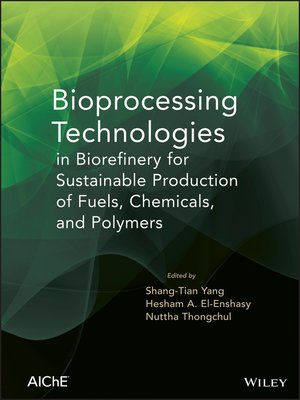Bioprocessing Technologies in Biorefinery for Sustainable Production of Fuels, Chemicals, and Polymers
ebook
By Shang-Tian Yang

Sign up to save your library
With an OverDrive account, you can save your favorite libraries for at-a-glance information about availability. Find out more about OverDrive accounts.
Find this title in Libby, the library reading app by OverDrive.



Search for a digital library with this title
Title found at these libraries:
| Loading... |
Sets the stage for large-scale production of biofuels and bio-based chemicals
In response to diminishing supplies as well as the environmental hazards posed by fossil fuels and petrochemicals, interest and demand for green, sustainable biofuels and bio-based chemicals are soaring. Biomass may be the solution. It is an abundant carbon-neutral renewable feedstock that can be used for the production of fuels and chemicals. Currently, biorefineries use corn, soybeans, and sugarcane for bioethanol and biodiesel production; however, there are many challenges facing biorefineries, preventing biomass from reaching its full potential.
This book provides a comprehensive review of bioprocessing technologies that use lignocellulosic biomass for the production of biofuels, biochemicals, and biopolymers. It begins with an overview of integrated biorefineries. Next, it covers:
All the chapters have been written and edited by leading experts in bioprocessing and biorefining technologies. Contributions are based on a thorough review of the literature as well as the authors' firsthand experience developing and working with bioprocessing technologies.
By setting forth the current state of the technology and pointing to promising new directions in research, Bioprocessing Technologies in Biorefinery for Sustainable Production of Fuels, Chemicals, and Polymers will enable readers to move towards large-scale, sustainable, and economical production of biofuels and bio-based chemicals.






